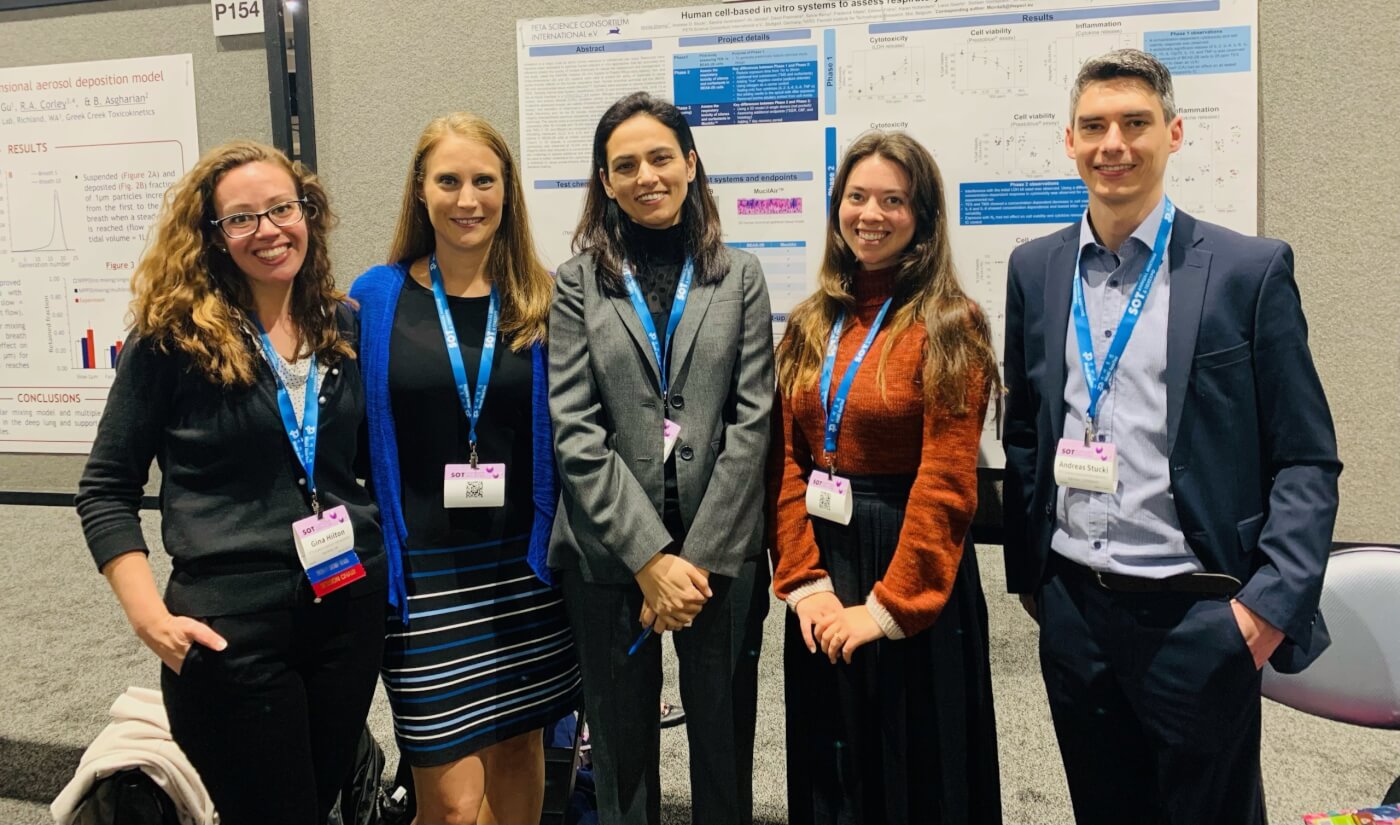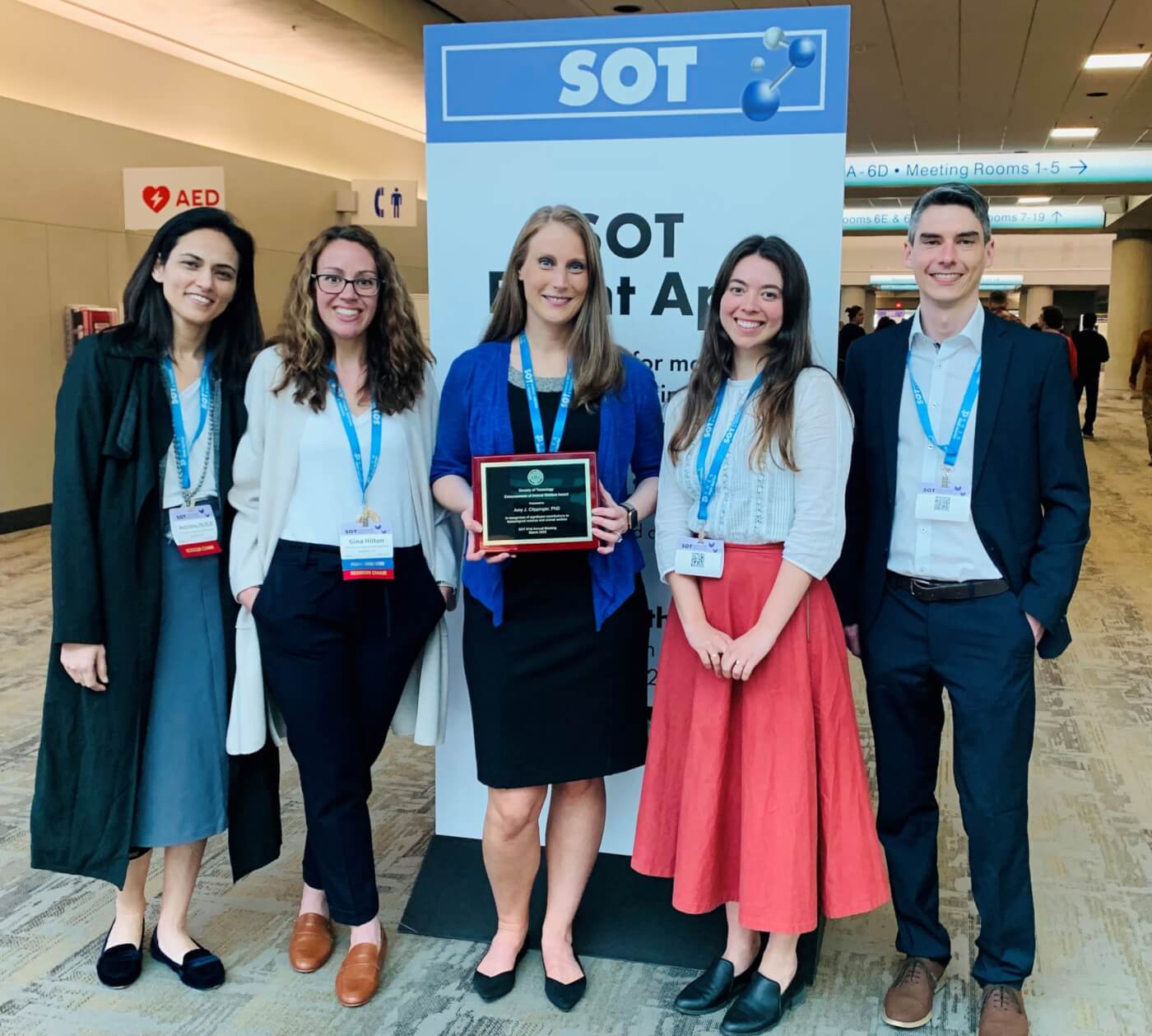PETA Scientists to Give, Receive Prestigious Awards at 2022 Society of Toxicology Meeting
PETA scientists are heading to San Diego to attend the 61st annual Society of Toxicology (SOT) conference, the largest toxicology conference in the world, drawing thousands of attendees annually. PETA scientists regularly attend the SOT annual meeting to discuss the best animal-free chemical testing strategies with government regulators, academics, and industry representatives.
This year, PETA scientists will be helming sessions on non-animal approaches for assessing nanotoxicity—which refers to the testing of materials that can be 100,000 times smaller than the diameter of human hair follicles—and modern approaches to testing chemicals to see if they affect the environment.

Should any of the thousands of attendees at SOT have questions about non-animal approaches to testing the effects of inhaled chemicals on the lungs, PETA scientists will be ready with posters showing how human cell–based three-dimensional models and donated human lungs can yield better, more human-relevant results than testing on rats.
Awards Will Feature Heavily at This Year’s SOT Conference
PETA Science Consortium International e.V. will present London Harper, an undergraduate student at North Carolina Central University, with its Student Award for Travel and Mentorship in Non-Animal Toxicology. Recognizing the value of having diverse voices and perspectives in the sciences, the Science Consortium established the award to support the education and training of students attending a historically Black college or university who are interested in non-animal approaches to toxicology testing.

We win awards, too! During an awards ceremony on March 27, Dr. Amy Clippinger—PETA’s vice president of regulatory testing and the president of the Science Consortium—was handed the SOT’s 2022 Enhancement of Animal Welfare Award in honor of her achievements advancing non-animal approaches to toxicology testing.

In addition, two papers coauthored by PETA scientists that highlight non-animal tests to check whether chemicals cause cancer or irritate human eyes will receive Best Paper awards from SOT specialty sections.
Invest in a Future That’s Free of Experiments on Animals
Overall, the Science Consortium and its members have donated millions of dollars toward improving and implementing non-animal test methods, including funding their development and validation as well as organizing free workshops, webinars, and training opportunities for scientists. You can help the Science Consortium replace the use of animals in chemical tests with superior, animal-free methods.

